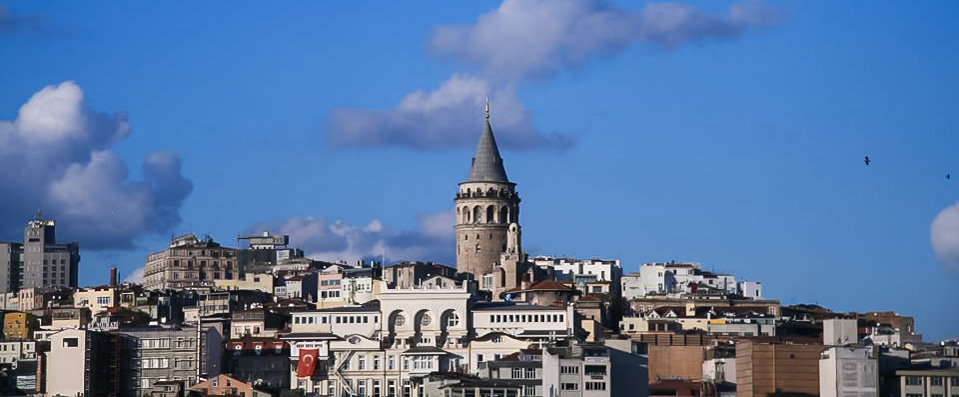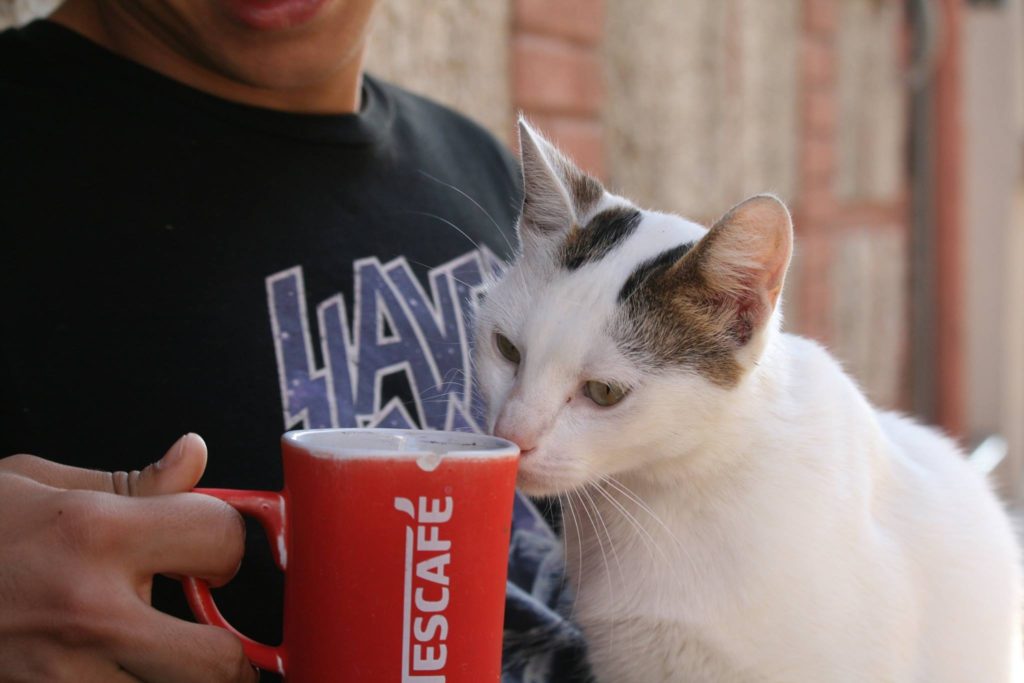“I miss home; who doesn’t miss home?”: Interviewing My Friend, a Syrian Refugee

September 2017
It was a warm and sunny September day in Istanbul when I met a young Syrian man working at the hostel where I stayed for the first few days while I searched for a more permanent place to stay during the four months I would spend in Turkey. To respect his wishes and personal privacy, I will address my friend by his first initial, S. During my short stay at the hostel, he and I became friends and we would regularly see each other while I was in Istanbul. Over the next few months that I spent in the city, I came to a better understanding of the social and political ramifications of the flood of Syrian refugees that have entered Turkey over the last few years. Before I returned to Canada, I asked S if I could interview him regarding his experience coming to Turkey six years ago as a refugee, to which he kindly agreed. As someone who had only understood the refugee crisis in terms of numbers and data, I hoped that I would be able to gain some insight into the personal stories of someone whose life was transformed by the Syrian Civil War.
“I’m wanted and we cannot stay anymore.”
The first question I asked S was why he had to leave home, the Syrian city of Latakia, when he was 15 years old. “It was because of my father,” he began. As a doctor, his father used to treat people who were injured during Syria’s first revolution in 2011. Through his work, he became vocal against the regime, and it was his activism which made him wanted in his country. S then told me that his father had been to jail before for this very reason, and upon learning that the government sought to imprison him once again, he decided they had to leave. S recounted the last day he spent at home: “I was sitting and watching TV and my father called us… he said, ‘Each of you can just bring one bag; we are leaving today. I’m wanted and we cannot stay anymore.’” The next morning, S, his siblings, and his parents left Syria, each person travelling with one small bag to what would be their new life in Antakya, a city located near the Syrian border in the south of Turkey.
Adjusting to life in Turkey, in S’s experience, was not too difficult. “It takes some time, especially [since] we didn’t know the language. But fortunately, we moved to a city where half of the population is Arabic. It was a little difficult first, but let’s be honest — after you learn the language it’s not that difficult to adjust to life here — at least that was my experience.” In his six years in Turkey, he has acquired Turkish to advanced fluency, and his English is convincing enough that I thought he had spent much longer than he really has to learn the language. His parents, on the other hand, refrained from learning Turkish, for reasons which S said may be partially due to their age, but more so because of a certain optimism that they will return home. “My father’s plan is to get back home,” S confided, “so he hasn’t bothered to learn Turkish… I think he wakes up every day thinking he will go back.” I inquired about his thoughts on this idea, to which he responded, “Right now it’s not realistic at all.” Regardless of the war’s outcome in Syria, S doubts that his family would ever be able to go back.
“Everyone is praying for Syria to get better, but nothing happened.”
“I used to be a very religious man,” S admitted. Knowing S as someone who has a septum piercing, loves heavy metal, and has a propensity for smoking and drinking, this came to me as a surprise. “I used to pray five times every day, I used to fast, and I used to read the Quran at least three times per week.” His transformation away from religion came at the age of 17 or 18, which led him to become the atheist he is today. Coming from a very religious family, he noted that once during a phone call, his father asked him if he still prays, and, to his father’s dismay, S replied that he did not. I recalled one night on a full moon in September when S told me that the war changed the way he perceived religion, and asked him to elaborate on what he meant:
“In the Quran and in holy books, they say just pray to god and everything will be okay. And I started thinking, you know, everyone is praying for Syria to get better, but nothing happened, so there’s something wrong. After ISIS showed up I started looking for the rules of ISIS and the Islamic military groups, and I really found them in the Quran.”
He acknowledged that many people do disagree with him, instead saying that the Quran is only supportive of nonviolence and that ISIS perverts the text to their own benefit. Ultimately S disagrees, adamant that there are parts of the holy book that do not align with peaceful values.
“Oh, he’s Syrian.”
During my time in Istanbul, I witnessed many anti-Arab comments that were made in casual conversations where the word ‘Arab’ would be mentioned with negative connotations. It is often brought up when discussing how certain neighbourhoods in the city have become much worse off due to the influx of Arabs in the population within the last few years. For those who see Istanbul as having fallen from a once-golden age, it seemed to me that it is easiest for the Turkish population to pin blame on the non-native newcomers. I asked S how this discrimination has affected him; while he also harbours resentment towards his people for the violence that they have inflicted upon each other in recent history, he admitted that his negative feelings come from a different place of understanding than that of the Turkish. “Their perspective is racist,” he stated bluntly, but then back-pedalled. “There’s no racism, [in Turkey] it’s nationalism… I’ve met a lot of people who treat me very well but at the same time I knew that they would say, ‘Oh, he’s Syrian,’… in a negative way.” Last year, S began university at a private school in Istanbul, and it has been hard for him to make friends: “I feel like at [university] no one likes me… partly because I am Syrian, but I don’t know why.” While he is not afraid to tell people that he is Syrian, he avoids the other Syrian students at the school, perhaps for fear of being associated with them. Despite these experiences, “It’s not the whole country [that doesn’t like Arabs],” he insisted. “I feel like people who are modern, open, free, and not too religious are more open to Syrians or other cultures, nations, and nationalities.” While he does not want to be ungrateful to the country he lives in, he does think that the government has used their status as the country to accept the largest number of Syrian refugees as a means of bolstering their international public appearance.
I wondered what S thought about the word ‘refugee’, and what it means to him in comparison to how the world perceives it. S answered, “[‘Refugee’ means] someone who had to move from his or her mother country to another country for a lot of reasons. I don’t know how people define the word ‘refugee’, but for most people in the world, the word ‘refugee’ is not good, even for the refugees. A lot of refugees don’t like to call themselves refugees because they think it’s something bad.” I asked him if he identifies as one of those people, and he shook his head saying, “No, I’m just a refugee. It doesn’t mean I’m a bad person or it doesn’t mean I’m a cheater to my country. It just means that I escaped from my country because I had to.”

“I miss home; who doesn’t miss home?”
“Do you feel like you’re at home here?” I had hardly finished my question before he cut in with a resounding, “No,” and a timid chuckle. “I don’t feel like I’m at home because I’m not at home, that’s it. This is not a place where I was born, where I grew up. This is not my language, this is not my country, not my food, not my flag, not my people.” When I asked him if he is proud of his nationality, he said that he is not. But regardless of the complex feelings he harbours against his people, he seemed certainly sure of one thing: “I miss home; who doesn’t miss home?” I then asked what he missed most about home, to which he replied, “I miss my childhood, I miss our summer house. I miss my cousins sometimes.” He doesn’t talk to his cousins much these days, who are still in Syria, but said he thinks he would feel more at home if they were here. I remember looking at his eyes which seemed to be red, and hoped that it wasn’t because he was holding back tears. S wished he brought his tennis racket with him, as he used to play the sport and loved to watch it on television. I asked, “Who was your favourite —” and before I even finished, he said, without hesitation, “Rafael Nadal and Andy Murray.” He also told me about his family’s photo albums: “I wish I had my photos of when I was a kid… we used to have a very good camera, so my parents used to take a lot of photos of us when we were playing… So each one of us has an album… I wish I had it right now.”
Although he is currently studying engineering, one of S’s aspirations is to become a journalist because, as he jokingly put in his own words, “The Middle East will always be on fire.” He is still in Turkey and has no plans of going anywhere else in the next few years. Despite his pessimistic outlook on the political situation in Syria, I genuinely wish that before long, he will be able to go back — where he will hopefully rediscover what it is like to feel at home.
Featured photo: The Galata tower, seen in the Istanbul skyline. Taken by Jasmine Lee.
Edited by Shirley Wang
